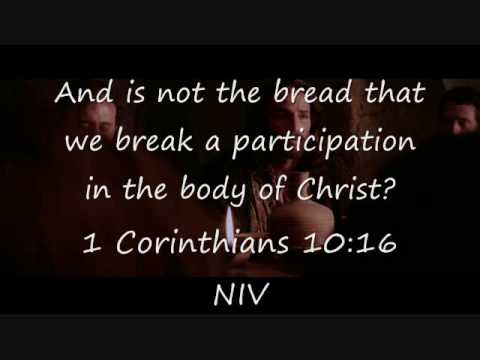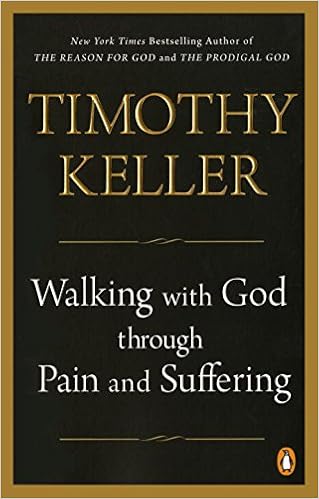 At the church we planted in New Jersey, small groups met weekly in various homes. Once a month, each shared a covered-dish dinner climaxed by the Lord’s Supper.
At the church we planted in New Jersey, small groups met weekly in various homes. Once a month, each shared a covered-dish dinner climaxed by the Lord’s Supper.
That’s what the Corinthians did (though we don’t know how often). According to Dr. Gordon Fee the church gathered in the homes of the rich. Archaeology has shown that the dining room (the triclinium) in those homes would accommodate only a few guests. So most would eat in the entry courtyard (the atrium) which would hold about 30-50,
“It would be sociologically natural for the host to invite those of his/her own class to eat in the triclinium, while the others would eat in the atrium. It is probable that the language ‘one’s own supper’ (11:21) refers to the eating of ‘private meals’ by the wealthy, in which, at the common meal of the Lord’s Supper, they ate either their own portions or perhaps privileged portions that were not made available to the ‘have-nots’” (The First Epistle to the Corinthians, p. 534).
Therefore, after Paul’s mild reproof of the women without head-coverings in Worship (11:2-16), he sharpens his rhetoric and addresses the Supper abuse . . .
In the following directives I have no praise for you, for your meetings do more harm than good 1 Corinthians 11:17).
Paul’s praised them for maintaining the traditions (11:2), but can’t commend them for their gatherings together which are (literally) “not for the better, but for the worse.”
In the first place, I hear that when you come together as a church, there are divisions among you, and to some extent I believe it (11:18).
Unlike the division of favorite preachers (1:10-17), these divisions (schismata) occur when they “come together as a church.” So scandalous is their behavior, and yet apparently so credible the informants, “to some extent” Paul believes it.
No doubt there have to be differences among you to show which of you have God’s approval. So then, when you come together, it is not the Lord’s Supper you eat, for when you are eating, some of you go ahead with your own private suppers. As a result, one person remains hungry and another gets drunk (11:19-21).
Divisions are not unexpected. Jesus warned, “Many will give up their faith at that time; they will betray one another and hate one another” (Matthew 24:10-12). These “differences” distinguish the God-approved, God-tested genuine believers from the false. The distinguishing mark is not their belief system but their behavior in line with the gospel.
The Corinthians supposedly eat the meal and the Lord’s Supper to honor the Lord in the presence of his Spirit. Instead they’re eating their own “private suppers.” By “go ahead with your own private suppers” Paul means they start earlier than the poor in the atrium. They also had larger meals as implied by, “As a result one person remains hungry and another gets drunk.”
The meal is designed to express their oneness in Christ. “Because there is one bread, we who are many are one body . . . “ (1 Corinthians 10:17). Instead it reveals how separated they really are.
Don’t you have homes to eat and drink in? Or do you despise the church of God by humiliating those who have nothing? What shall I say to you? Shall I praise you? Certainly not in this matter (1 Corinthians 11:22).
Paul’s questions cut. Don’t you have homes in which to eat and drink your lavish meals? Therefore, the second question: Or do you despise the church of God by humiliating those who have nothing? Their behavior at the meal should show they value the church as one body in Christ. But by humiliating the poor, they’re showing contempt for God’s church as if it is valueless.
No way can Paul praise them in this!
So the meal represents their unity in Christ. Paul will remind them what the Lord himself said about that next time. For now, what can we take away?
* * * * *
We don’t abuse the poor at the Lord’s Supper. (No chance. We don’t eat a meal!) But we have another means of abuse: a broken relationship with a fellow believer. How often two feuding brothers in Christ eat and drink at the Table as if they’re not! Like the Corinthians, they show contempt for God’s church.
Should we, then, not participate? I’ve got a better way.
The Lord’s Supper is an ideal time for reconciliation. If I’m in conflict with a fellow believer, in private prayer during the Supper I can ask forgiveness for myself and give forgiveness to my brother. Then, after, I can go and ask his forgiveness for my blame in the conflict.
Conflicts in the church are inevitable. Relationships fall into a hard freeze.
But at the Lord’s Table, as we remember his sacrificial love for us, our hearts can soften, conflicts can melt, and we sinners saved by grace can be one again.

![Walking with God through Pain and Suffering by [Keller, Timothy]](https://images-na.ssl-images-amazon.com/images/I/41LLcCqlRsL.jpg)



Recent Comments